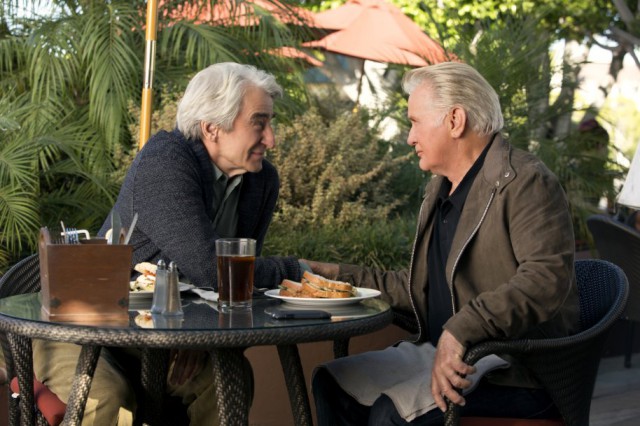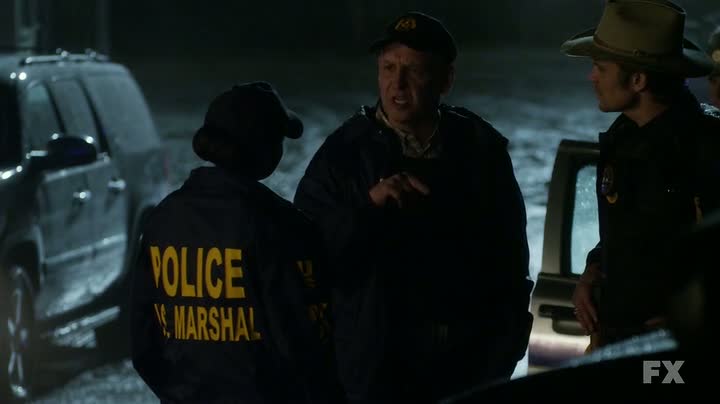Grace and Frankie, Season 1
Created by Marta Kauffman and Howard J. Morris
Premiered May 8th, 2015 on Netflix
On the surface, Grace and Frankie sounds almost too good to be true. The title characters (Jane Fonda and Lily Tomlin, respectively) are two septuagenarians whose husbands, Robert and Sol (Martin Sheen and Sam Waterston) announce that they are leaving the women for each other. The strengths and legacies of the actors, the contrast in personalities, and the core hook of the show sound as if they’re tailor-made to deliver Netflix’s next binge-worthy addiction.
It’s a shame, then, that Grace and Frankie squanders its potential with writing that’s flat, unoriginal, and downright uninspired. There’s a plethora of problems with the writing throughout the season, but most notable among them is that creators Marta Kauffman (co-creator of Friends) and Howard J. Morris can’t seem to decide what kind of show they want to write. The show traffics in dumb puns and juvenile blow job jokes, while also harboring a maudlin sentimentality that would feel manipulative if it had been executed well enough to possibly tug anyone’s heartstrings. This see-sawing can be seen from the beginning of the pilot, in which an exchange between the women that’s played for laughs is shortly followed by an emotional shot of Grace grappling with the mens’ announcement, which feels ripped from a soapy tearjerker.
Sure, mixtures of drama and comedy have ruled television as of late, with shows such as Girls, Louie, Mad Men, Orange is the New Black, Transparent, and Better Call Saul seamlessly blending humor with their dramatic arcs. But whereas those shows seem to be setting new standards for the limits of genre, Grace and Frankie appears to be looking backwards, to the sort of thing which gave the term “dramedy” a bad name. Rather than integrate humor and story into a distinct narrative style that hews to life’s natural tragicomedic rhythm (as the other aforementioned shows do at their best), Grace and Frankie uncomfortably mixes aspects of tragedy and comedy by combining unwarranted and unearned melodrama with unfunny and forced jokes.
It doesn’t help that many of these jokes have a mean and nasty streak to them, which ruins any sense of fun the show could potentially have. One of Sol and Frankie’s adopted sons, Coyote (Ethan Embry), gets out of rehab right before the events of the season, and his addiction is frequently mined for laughs. In “The Dinner,” a frequently revisited joke hinges around the chaos that ensues from Sol and Robert’s inability to serve alcohol at a meal due to Coyote’s presence. His adoptive brother, Bud (Baron Vaughn), mocks the pride Coyote takes in his job as a substitute teacher (because, like, the working class, am I right??). Grace and Frankie treats Frankie’s ex-convict students with equal disdain, their troubled pasts reduced to punchlines, and Byron’s (Timothy V. Murphy) breaking and entering suggesting the inability of former criminals to change their ways. Not only are these characters morally troubling due to their stereotypical and unflattering characteristics, they aren’t the slightest bit convincing as people, feeling instead like the results of lazy writing.
Robert and Grace’s children aren’t any more complex, but at least the stereotypes they embody don’t find Kauffman and Morris punching down, as they do with Coyote and Byron. Mallory (Brooklyn Decker) and Brianna (June Diane Raphael) are upper-crust princesses, presumably because of their upper-crust parents, and there’s not much else to say about their characters. One would think that Kauffman and Morris would’ve realized the staleness of this sort of joke after the media portrayals of the Bush twins, but their realization of these characters finds them doing their damnedest to obliterate a dead horse. Kauffman and Morris’ choice of two female characters as the brunt of these jokes suggests a gender bias, but their staleness and archetypical nature overwhelms their possible misogyny.
If its characterization wasn’t shoddy enough, the shallow plotting would certainly be enough to ruin any of the show’s chances at credibility. Too many episodes hinge on showing how the various pairings react to similar situations (i.e. regaining youth in “Bachelor Party,” infidelity in “The Secrets,” an obvious subject in “The Sex,” etc.). Rather than revealing insights about all of the characters involved, these parallels come across as skin-deep methods for organizing characters whom Kauffman and Morris don’t seem to have given much thought to developing in the first place.
Regardless of how much effort did or didn’t go into Grace and Frankie, whatever insights inspired the show appear to have been sorely misguided. Between its tonal awkwardness, stereotypical characters, and uninteresting story lines, the series comes across as a squandered attempt to bring together four storied actors in the twilight of their careers. Grace and Frankie feels like it was mostly green-lit as a way for Netflix executives to ride the coat-tails of Amazon’s successful Transparent. Unfortunately, their attempt to do so has none of that show’s originality, wit, or sense of fun.








